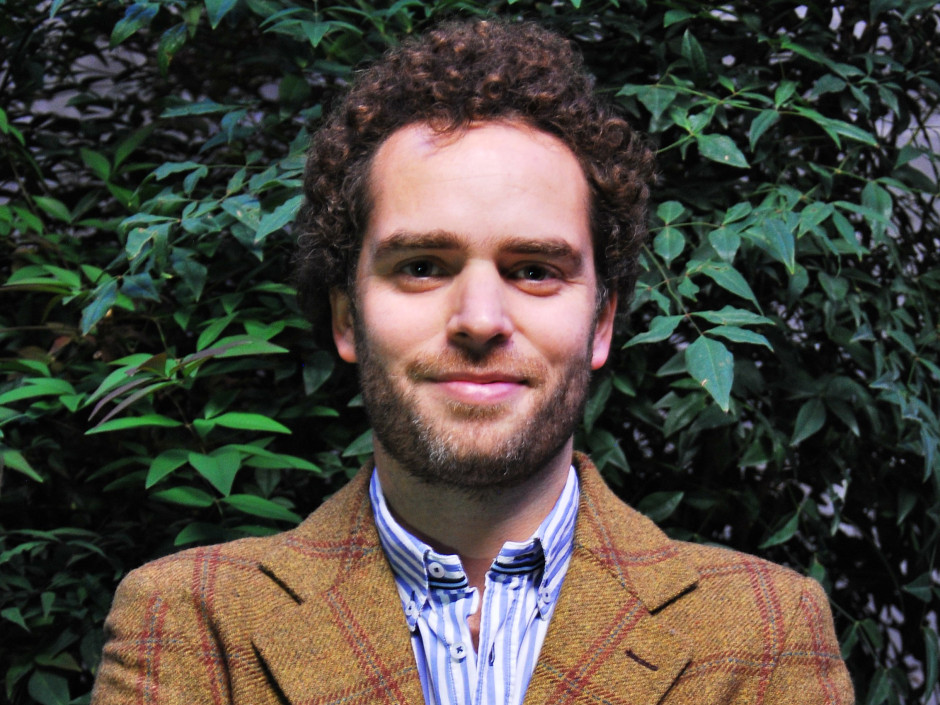Aiming for the higher ground
Why international cooperation is so crucial for Latin America. An interview with Chilean sociologist Carlos Cruz Infante.
Latin America is on fire - not only in a figurative sense. Millions of Venezuelans are leaving their country,
where political and humanitarian crises are a matter of mutual conflict. After Evo Morales' resignation, Bolivia has sunk into chaos and Brazil's President Jair Bolsonaro is cutting down rainforest areas, equal to the area of a football pitch, every minute. A new constitution is being discussed in Chile. The distance between South Tyrol and Latin America is over 12.000 kilometres and yet we are closer to what is happening there than ever before. This proximity was recently demonstrated at a lecture organised by Eurac Research´s Center for Advanced Studies in cooperation with the Südtiroler Sparkasse Foundation: the young Chilean sociologist Carlos Cruz Infante spoke about the relationship between the EU and South America. In June 2019, the EU and the countries of the South American trade alliance MERCOSUR - Argentina, Brazil, Paraguay and Uruguay – reached a free trade agreement – after 20 years of lengthy talks. It is the biggest milestone in economic cooperation since Latin America's independence and the largest free trade agreement in the world to date.
Mr. Cruz Infante, from a Latin American point of view, why is this agreement such an important landmark?
Cruz Infante: International cooperation is of crucial importance for South America's progress. The EU-MERCOSUR-Agreement is a huge chance for our countries. Absolutely so. It drives Latin American states to set their standards high and to orient themselves towards a new rule of law. Without this direct incentive, South America has little chance of meeting Europe at eye level. We´ve grown a lot. We´ve actually more than doubled our gross domestic product since the year 2000. I would also say that the social indicators were getting better. Health care, life expectancy, mortality from diseases, housing: all this has changed for the better. But still there is an extreme social inequality. Today the 10 percent richest Latin Americans monopolize 55 percent of the regional income. The most recent precedent in the European Union was in 1900. We are at least 100 years behind in terms of distribution.
You seem to have little confidence that South America will be able to develop so-called western standards on its own.
Cruz Infante: To be honest? Without international collaborations I fear it would take a thousand years to take the right path in development.
How so?
Cruz Infante: In order to explain this, we must bear in mind that South America has a long history of having power – both political and economic - concentrated in a very few hands, with no enticement to give up some of the long-enjoyed benefits and privileges in favour of investments into state capacity. This misalignment has plunged Latin America into institutional mistrust and a governability crisis. Between the 80s and 90s democracy may have arrived in Latin America, but with very clear restrictions. Not to forget the so-called “Dutch disease”. Due to the sale of commodities, exports rise above the current account of the states, which means that goods can be imported cheaply, but other parts of the economy are losing their competitiveness in the international markets. As the Latin American situation after the cold war was still very unstable in terms of economics, the United States feared it could be an open door for socialism to invade from the south. That is why they provided some help, but they were far more concerned with increasing economic growth than with caring for the people. In addition, the South American states are uncapable of enforcing political decisions. We are gaining capital, we have the entrepreneurs and flourishing companies, but they still belong to the same rich guys as at the beginning of the 20th century.
So, one major problem is in fact the social mobility?
Cruz Infante: Social mobility is very low indeed. Just imagine: In the OECD the average of generations it would take, to get from the 10 percent poorest to the middle income of your country is 4,5 generations. We are talking about 30 years. Those who, on the other hand, belong to the poorest 10 percent in Brazil can calculate that their descendants will need nine generations – that's 270 years - to reach a middle income. In Colombia it is eleven generations. Not to mention, that the middle income in Brazil or Colombia is not even close to a middle income in the EU. Latin America needs to invest in early childhood education. We actually spend the same percent of our GDP as the EU, but we invest only in tertiary education. South American states need strong institutions, a progressive tax system and more opportunities for citizens to participate. I can only talk about Chile which I know best, but as Chile entered the OECD and was exposed to those measures and comparisons, we had to muster all our strength and realise that we were no longer competing with Peru – but with Germany or Italy. This also applies to environmental issues.
As you said, Latin America would benefit enormously from a trade agreement with the EU. What does the EU gain from this?
Cruz Infante: Well, the EU-MERCOSUR-Agreement opens a new market with access to a total of 780 million people. Once the agreement has been fully implemented, 91 percent of EU goods will be exported duty-free to the MERCOSUR states. This will also have impacts on a small region such as South Tyrol. You may have very advanced human capital, you have knowledge and funds. Latin America on the other hand offers a huge open laboratory. We have the Amazon rainforest, the desert of Atacama, the Andes. We have long coasts with very strong currents. This marine current power is an almost inexhaustible source of energy that has hardly been used up until now. We have the resources, but we need someone to manage them. We have the commodities; the EU has the technology. Despite the obstacles, South America could be a very valuable partner of the European Union.
Facing the recent situation – for example the fires in the Amazon rainforest - France has already threatened not to ratify the agreement and, the Austrian National Council has recently voted against its cooperation. What do you suggest? What would you do as a leader of a European country?
Cruz Infante: As the state capacity in South American countries is low, we depend dramatically on who is in charge. Therefore, I’d suggest reacting quickly and starting negotiations immediately - as long as the current presidents assure the agreement. The MERCOSUR is not the only trade bloc though and there is yet another important group: The Pacific Alliance. MERCOSUR was founded to establish a macroeconomic agenda to control inflation and common custom duties with a focus on south to south cooperation, whereas, the Pacific Alliance - formed by Mexico, Colombia, Peru and Chile - seeks international involvement and is looking to the Pacific Ocean; the US, China, Japan, Australia or New Zealand. Those South American countries are far more open to change their regulations in order to really get involved in this global economy. The EU would do well to enter proceedings, as many other countries are eager to do so.
About Carlos Cruz Infante:
Carlos Cruz Infante is a Chilean MBA sociologist, already a significant and influential individual in Chile by a very young age, where he headed the strategy and communications department of the General Secretariat of the Presidency of the Chilean Government.
He has a profound knowledge of Latin American politics and works as an advisor to the Inter-American Development Bank. Recently he spoke in the context of the lecture series "Future of Europe" about the relations between Europe and Latin America.
Related Articles
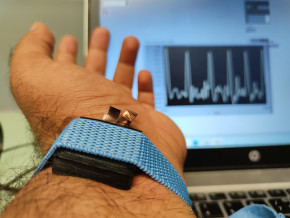
Tecno-prodotti. Creati nuovi sensori triboelettrici nel laboratorio di sensoristica al NOI Techpark
I wearable sono dispositivi ormai imprescindibili nel settore sanitario e sportivo: un mercato in crescita a livello globale che ha bisogno di fonti di energia alternative e sensori affidabili, economici e sostenibili. Il laboratorio Sensing Technologies Lab della Libera Università di Bolzano (unibz) al Parco Tecnologico NOI Techpark ha realizzato un prototipo di dispositivo indossabile autoalimentato che soddisfa tutti questi requisiti. Un progetto nato grazie alla collaborazione con il Center for Sensing Solutions di Eurac Research e l’Advanced Technology Institute dell’Università del Surrey.
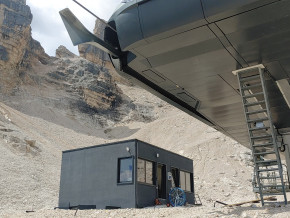
unibz forscht an technologischen Lösungen zur Erhaltung des Permafrostes in den Dolomiten
Wie kann brüchig gewordener Boden in den Dolomiten gekühlt und damit gesichert werden? Am Samstag, den 9. September fand in Cortina d'Ampezzo an der Bergstation der Sesselbahn Pian Ra Valles Bus Tofana die Präsentation des Projekts „Rescue Permafrost " statt. Ein Projekt, das in Zusammenarbeit mit Fachleuten für nachhaltiges Design, darunter einem Forschungsteam für Umweltphysik der unibz, entwickelt wurde. Das gemeinsame Ziel: das gefährliche Auftauen des Permafrosts zu verhindern, ein Phänomen, das aufgrund des globalen Klimawandels immer öfter auftritt. Die Freie Universität Bozen hat nun im Rahmen des Forschungsprojekts eine erste dynamische Analyse der Auswirkungen einer technologischen Lösung zur Kühlung der Bodentemperatur durchgeführt.
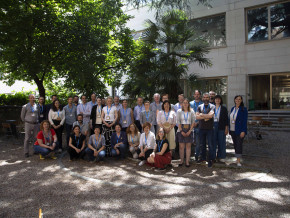
Gesunde Böden dank Partizipation der Bevölkerung: unibz koordiniert Citizen-Science-Projekt ECHO
Die Citizen-Science-Initiative „ECHO - Engaging Citizens in soil science: the road to Healthier Soils" zielt darauf ab, das Wissen und das Bewusstsein der EU-Bürger:innen für die Bodengesundheit über deren aktive Einbeziehung in das Projekt zu verbessern. Mit 16 Teilnehmern aus ganz Europa - 10 führenden Universitäten und Forschungszentren, 4 KMU und 2 Stiftungen - wird ECHO 16.500 Standorte in verschiedenen klimatischen und biogeografischen Regionen bewerten, um seine ehrgeizigen Ziele zu erreichen.
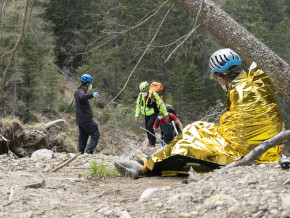
Erstversorgung: Drohnen machen den Unterschied
Die Ergebnisse einer Studie von Eurac Research und der Bergrettung Südtirol liegen vor.
